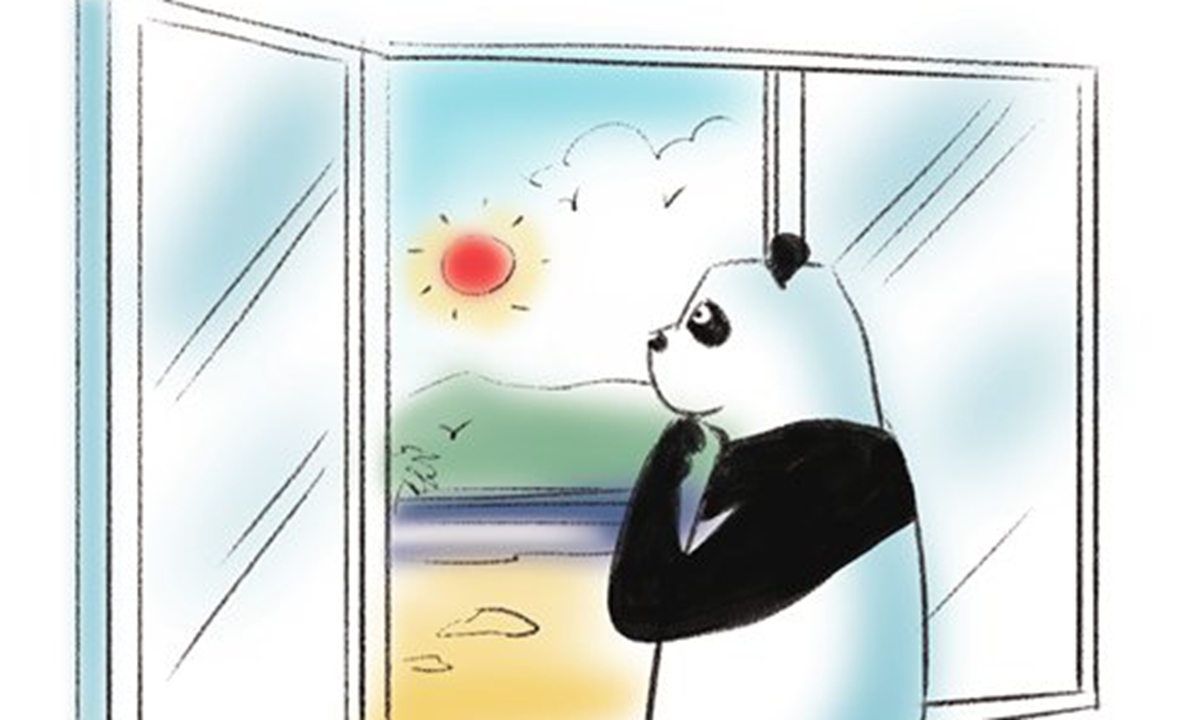‘China isolation’ is a seriously wrong impression
By Hu Xijin Source: Global Times Published: 2020/9/6 14:26:24

Illustration: Liu Rui/GT
I often see people complain on the internet. How come the whole world is China's enemy? Why is China so isolated? Those people think the world is mostly blaming us on issues such as Xinjiang, Tibet, Hong Kong. In their view, on the South China Sea conflict and the China-India border tensions, the international public opinion is mostly on the other side. China is lonelier than ever.
I want to say that this is a serious misperception. The biggest change in China's diplomacy in the past two or three years has been the fundamental change in the US policy towards China, which has led to a change in the attitude towards China of a few of the US's most ardent allies, mainly the Five Eyes alliance countries. In addition, the intensification of border disputes between China and India has led to a hardening of India's attitude towards China. Apart from that, there are no other major changes in China's diplomatic landscape, and the notion of "China's isolation" is simply untenable.
In addition, please note that China-Japan relations have been eased and China's relations with major European countries are also being strengthened. China-Africa relations, China's relations with many countries in Asia and Latin America are also getting better and better, and China-North Korea relations have been significantly improved, not to mention the continuous consolidation of China-Russia relations at a high level.
The US has carried out a whole-government crackdown on China. The anti-China remarks of senior US officials have been dizzying and constantly flooded the field of Western public opinion, which are echoed by public opinion in the UK, Australia, Canada and other countries. They have largely influenced the attitude of Western public opinion towards China. Those public opinions are also biased in favor of India, and unfriendly to China on the South China Sea issue and other China-related issues, which increases the impression of some people that "the whole world is full of hostile voices to China."
However, a closer look shows that there are only a few sources of those anti-China voices, which, combined with the Western bias against China, seem to be quite loud. Those voices are actually minority voices in the world, and they are far from a reflection of the common attitude of the international community.
The evidence that China is not alone is overwhelming. When the UN Human Rights Council issued statement last year on China's Xinjiang and this year on Hong Kong, it was just the two dozen Western countries that opposed China, while far more countries supported China's stance on the two occasions. The facts speak for themselves: the number of friendly countries supporting China is not only large, but also larger in total population, making up the real majority of human society. It is only because they do not have as big a say as developed countries and their voices are weak in the field of public opinion that some people have the illusion that anti-China voices fill the whole world.
It is true that China has territorial disputes with some of its neighboring countries. This is the result of Asian countries' borderlines being in barren areas and not clearly demarcated earlier in history. China has negotiated land borders with most of its neighbors, including Vietnam. But we still have land or maritime disputes with India, countries around the South China Sea and Japan. But look at what happened with Japan and India. Japan has territorial disputes with China, South Korea and Russia, three maritime neighbors. India has land border disputes with China, Pakistan, Nepal and so on. Among China, Japan and India, China has negotiated the most successful border demarcation with its neighbors.
The public opinion dilemma China faces is mainly caused by the deterioration of China-US relations. But the purpose of the US is to stop China's development and make it a subservient country to Washington. The size of our economy must never exceed it, our high-tech capabilities must never be self-developed, our defense budget must never rise, and our nuclear arsenal must shrink from its current small size. That way we can get rid of Washington's strategic suppression. But are these terms acceptable to us? Do we want the US to have a "good attitude" towards China, or do we want the great rejuvenation of the Chinese nation?
If China is determined to defend its right to continue its development, then we should be more determined and more open-minded in the face of attacks from the US and the Five-Eyes Alliance. The US and the Five Eyes Alliance do not represent the world, nor even the West. Washington with a bunch of pawns blaring their horns can't do anything to China.
We love peace and truly promote friendship with all nations. On the premise of safeguarding China's core interests, we will strive to resolve differences with some countries through peaceful means and through enhanced communication and consultation. If it can't be resolved for a while, we will move forward with the problem. We don't have to care too much about others' attitude.
The author is editor-in-chief of the Global Times. opinion@globaltimes.com.cn
Posted in: OBSERVER